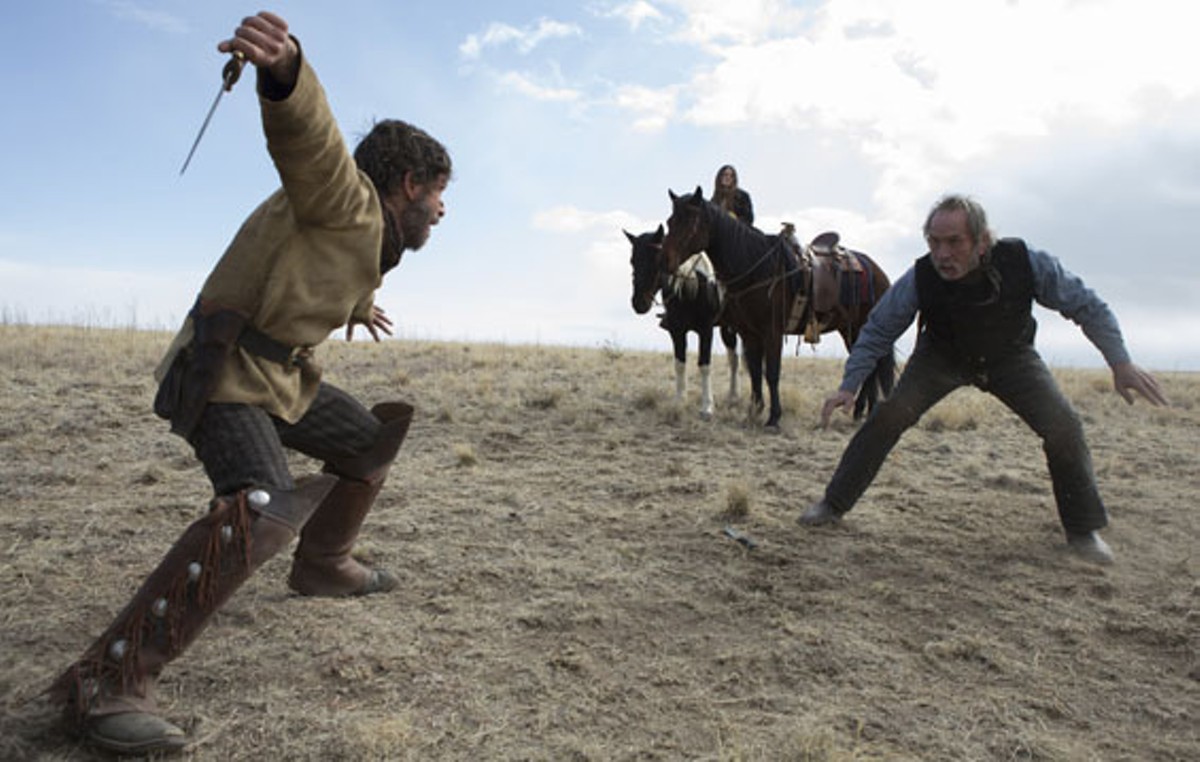Tales of the Old West continue to make up a significant portion of our cultural narrative, mostly because we still like to comfort ourselves with stories showing that ours is a land of opportunity. Making the trek to the American frontier promised a new life, or at the very least a fresh start. With The Homesman, director/co-star Tommy Lee Jones inverts this storyline, presenting a bleak yet accomplished account of defeat, of how that frontier often forced a surrender of the mind, spirit, and even the soul.
Life in the Nebraska Territory is harsh, but you don't need to tell lonely Mary Bee Cuddy (Hilary Swank) that. Holder of two sizable land claims and one of the few farmers in the area turning a profit, she's nonetheless unable to complete her Wild West trifecta by getting hitched (she's referred to as both "too bossy" and "too plain" for matrimony on several occasions). However, she's got it relatively easy compared to Arabella (Grace Gummer), Theoline (Miranda Otto), and Gro (Sonja Richter), three women who've all lost their minds for a variety of reasons. Mary Bee agrees to transport the women to their families back East before they do more harm to themselves or their families (only after the men in the town fail to volunteer for the duty). Reluctantly joining her in this venture is an unrepentant claim-jumper named George Briggs (Jones), whom she fortuitously saves from a lynching.
Jones is helming his first film since The Three Burials of Melquiades Estrada, and he employs the forbidding landscape for thematic weight, just as in that more contemporary western. The vast emptiness of the Territory, broken only intermittently by stunted trees, underscores the difficulty of Cuddy's mission while serving as a constant reminder of what helped drive the women from their sanity in the first place. And as in Three Burials, odd encounters along the journey help propel the story. Among these: an opportunistic cowboy (Tim Blake Nelson) who attempts to take advantage of a wandering Arabella, and an unctuous innkeeper (James Spader), unrealistically holding out for a better class of clientele than one usually finds on the lone prairie.
Jones knows frontier life wasn't just perilous for women; the men of The Homesman are poor specimens in their own right. Briggs is a deserter (at best), while the stricken women's respective husbands run the gamut from "useless" to "rapist." The pervasive cruelty stands out that much starker, bracketed as it is in the film by a pair of prayers, one delivered by an earnest minister (John Lithgow), the other by a kindly preacher's wife (Meryl Streep), both issued when they were least needed: i.e., not during the torturous journey itself. Still, Glendon Swarthout's 1988 novel offered a rare approach to those Old West stories by shifting the focus to the women and children who often bore its brunt the worst, and Jones has — for the most part — successfully captured this, often in devastating fashion.






